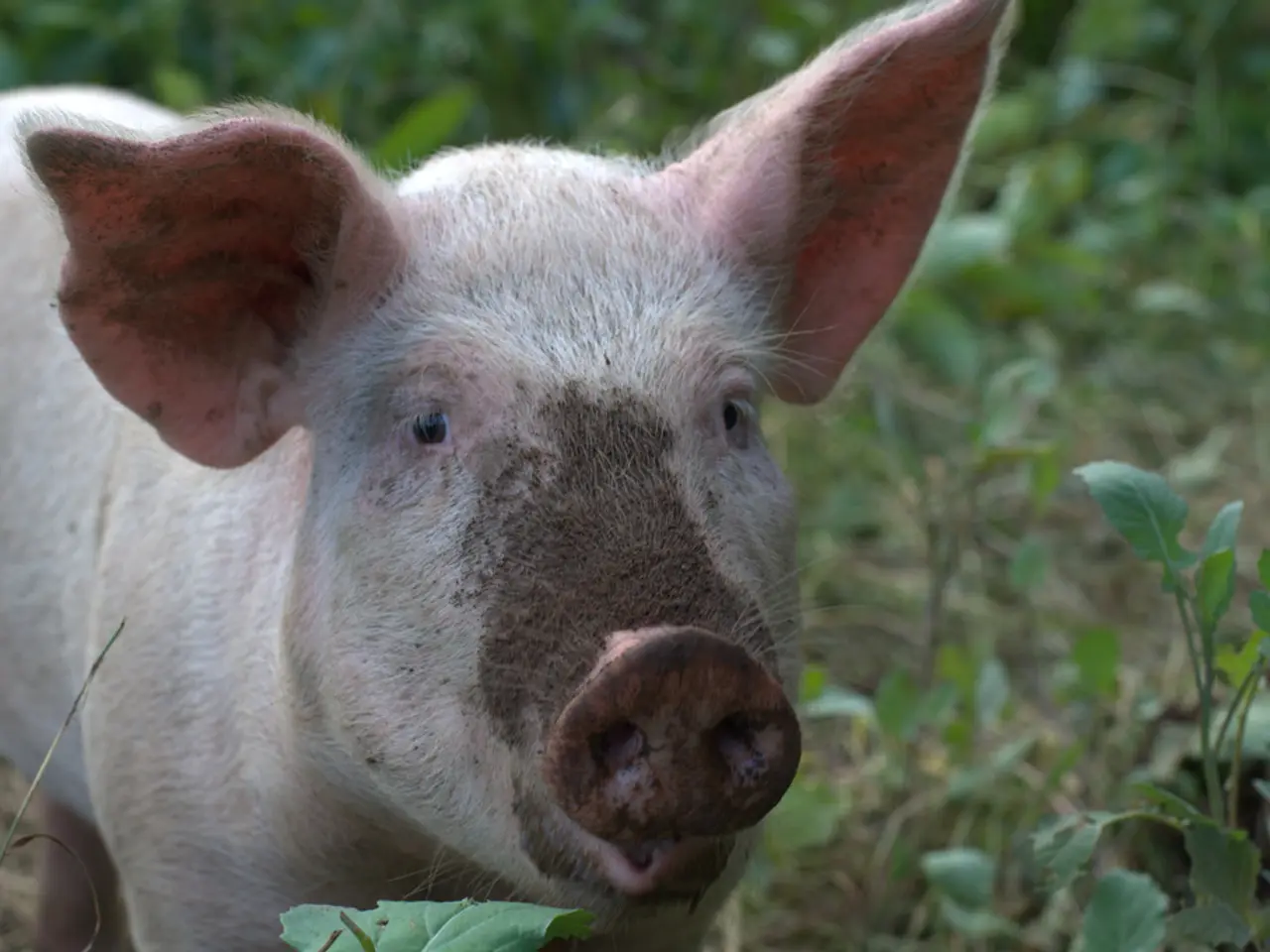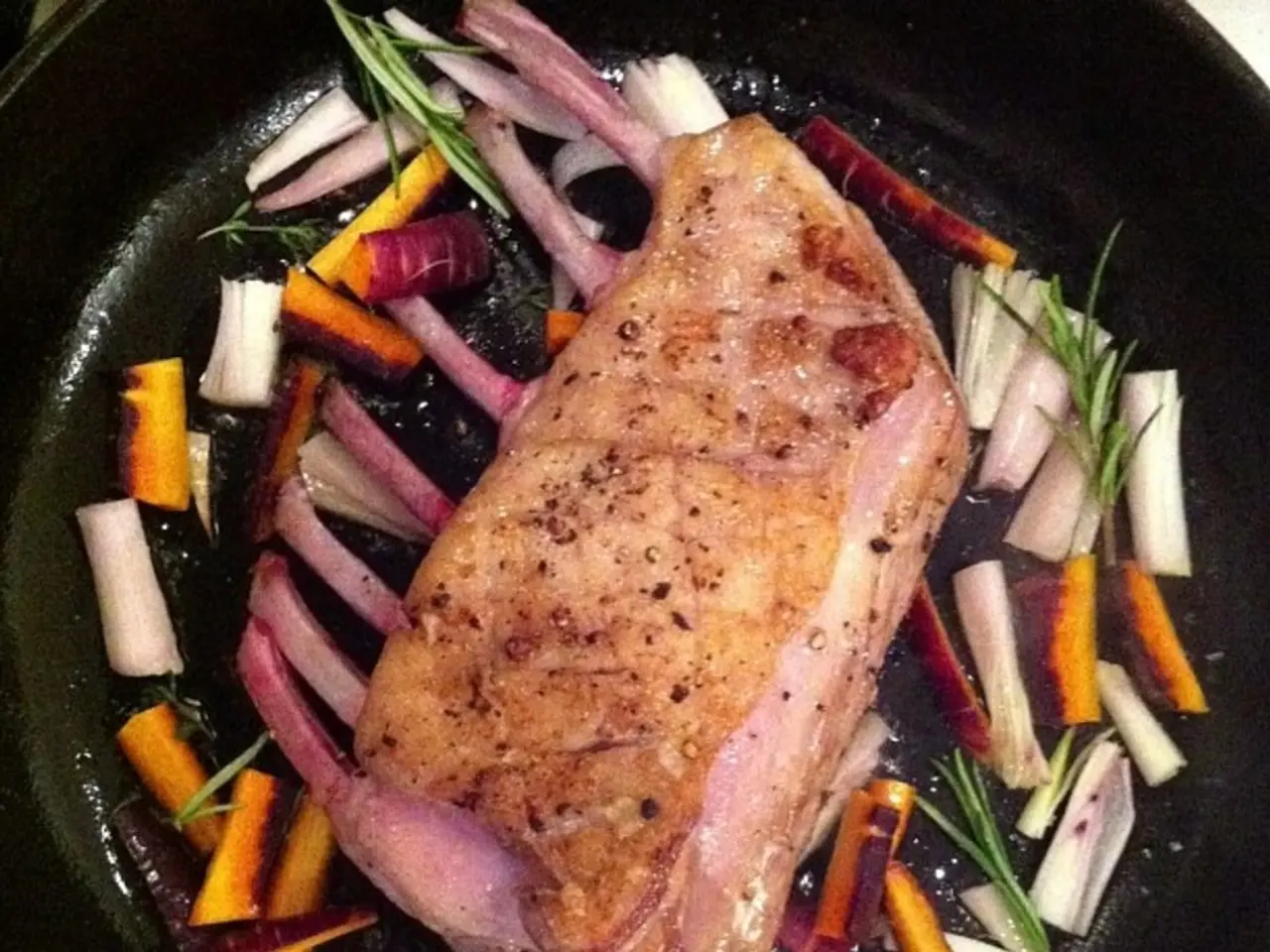Guinea pig-friendly food options: A comprehensive list of 32 edibles for your cute pet cavies.
A Comprehensive Guide to Feeding Guinea Pigs: Fresh Foods and Safe Treats
Guinea pigs, these small, adorable pets require a balanced and nutritious diet to keep them healthy and happy. While their primary food source is Timothy hay, it's essential to supplement their diet with a variety of fresh vegetables, fruits, and herbs to ensure they receive the necessary vitamins and minerals.
Fresh vegetables and leafy greens, such as kale, parsley, spinach, Swiss chard, and cilantro, are excellent choices. Other vegetables, like bell peppers, broccoli, cauliflower, beets, tomatoes, and asparagus, can also be included in their diet. Fruits, though high in sugar, can be given in moderation. Safe and nutritious options include orange, kiwi, mango, peach, blueberries, and raspberries.
Herbs like basil, dill, mint, and thyme can be offered occasionally to add variety to their diet. Chamomile is a great herb that can be added to hay to provide enrichment, while calendula, or pot marigolds, are low in calories and high in fiber, making them a healthy treat.
Aside from fresh foods, fortified guinea pig pellets can be offered in small amounts to supplement nutrition and ensure adequate vitamin C intake.
It's important to note that some foods should be avoided. Iceberg lettuce, garlic, onions, mushrooms, potatoes, nuts, seeds, and eggplant leaves and stems are toxic or harmful to guinea pigs. Wild blackberries often have large thorns that should be removed before feeding, and clover hay should not be fed.
When introducing new foods, do so gradually to avoid digestive upset. Always feed fruits sparingly due to their sugar content. Continual availability of fresh Timothy hay remains essential for digestion and dental health.
Some safe and enjoyable treats for guinea pigs include baby corn, unseasoned popcorn, and apples. Baby corn can be given in a few slices as a treat, while unseasoned popcorn can be given as a special treat, but should not be a regular part of their diet. Apples can be given in moderation, and blackberry and bramble leaves are safe for guinea pigs, but wild blackberries often have large thorns that should be removed before feeding.
Foraging foods like cleavers, or sticky willy, and apples leaves and twigs can provide free enrichment for your guinea pig. Eggplant can be given as an occasional treat, but eggplant leaves and stems are toxic. Radish tops are an excellent source of calcium, but should be fed in moderation to avoid urinary issues.
Celery, sweet peppers, kiwi fruit (when given as an occasional treat, it should be washed and peeled), broccoli, spinach, cucumbers, carrots, and dandelion greens, flowers, and roots can all be given to guinea pigs in moderation.
In hot weather, cucumbers are a good source of vitamins, minerals, and water for guinea pigs. Orchard hay can be consumed by guinea pigs in unlimited amounts and is slightly softer than Timothy hay, making it a good choice for elderly guinea pigs. Parsley is a good source of calcium and vitamin C and should be given in a generous palm-sized amount daily.
By following this guide, you can provide your guinea pig with a balanced, safe, and healthy diet that will keep them happy and healthy for years to come.
- In addition to Timothy hay, it's crucial to supplement a guinea pig's diet with fresh vegetables, fruits, and herbs for necessary vitamins and minerals.
- Fresh vegetables like kale, broccoli, and cauliflower, as well as fruits such as mango and raspberries, can be included in a guinea pig's balanced diet.
- Occasionally, herbs like basil, dill, and chammeli can be offered to add variety to a guinea pig's diet, while calendula is a healthy treat.
- Fortified guinea pig pellets should be given in small amounts along with fresh foods to supplement nutrition and ensure adequate vitamin C intake.
- Some foods to avoid feeding guinea pigs include iceberg lettuce, garlic, onions, mushrooms, potatoes, nuts, seeds, eggplant leaves and stems, wild blackberries, and clover hay.




